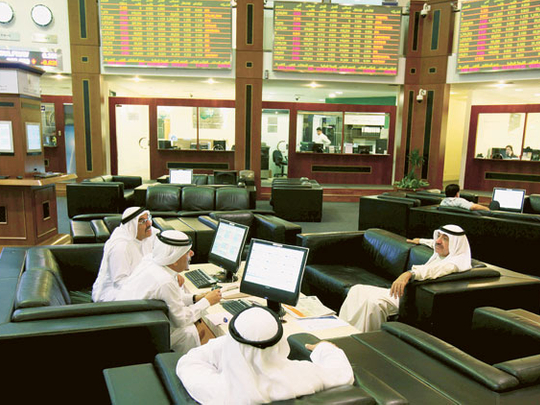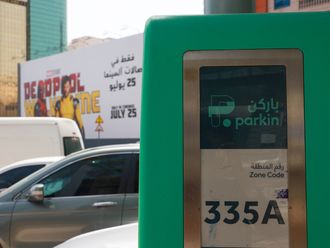
Shakeel Sarwar, Head of asset management, SICO, Bahrain
- In 2011, political upheaval and global economic uncertainty benefited the defensive companies in our portfolio, Jarir Marketing and Saudia Dairy and Food Company (Sadafco) which were in our top five holdings increased by 39 per cent and 10 per cent respectively.While many petrochemicals saw their share price decline between five and 10 per cent in 2011, National Industrial Company (Tasnee), one of our top picks for the year, increased by 28 per cent in 2011. Oxide prices have increased by approximately 30 per cent, primarily due to global capacity constraints. We have consistently maintained significant exposure to Qatari banks. Masraf Al Rayan and Qatar National Bank increased by 46 per cent YTD (year-to-date) and 14 per cent YTD respectively.European sovereign debt woes are likely to dominate news flow in 2012 and we expect this to result in increased volatility of the regional markets. Furthermore, initial indications from China suggest its economy is slowing. Given the uncertainty, we intend to maintain the defensive composition of the portfolio. We will maintain our investment in companies such as Jarir and Sadafco, while reducing our exposure to Tasnee and the rest of the petrochemicals. In 2012, we will continue to increase our allocation to Saudi Arabia, infrastructure related companies and the financials are likely to benefit from healthy government spending, furthermore, there have been reports the Saudi authorities are looking to relax regulation relating to foreign ownership, this would also provide further impetus to the Saudi market.
Tareq Qaqish, Deputy head of asset management, Al Mal Capital, Dubai
- Oil revenues are expected to support above average infrastructure spending in major GCC economies, specifically Saudi Arabia. We see global risk intensifying and will retain our cautious stand on names that are highly correlated to international uncertainty and favour companies that cater to domestic demand. [But, while regional] valuations are reasonable, [there is the risk of contagion] from the Arab Spring. We retain defensive sector preferences in utilities, telecoms, and consumer staples sectors. Emaar Properties is one of the few companies during the last two years that was upgraded by ratings agencies. We see this as a sign of improved liquidity backed by a diversified business module. With its geographical diversification outside the UAE and recurring income, Emaar is one of the few plays on the booming hospitality business in Dubai. Etihad Etisalat (Mobily) is a defensive play that caters for the growing young population of Saudi Arabia. Its data revenue will continue to drive top line and support margins.Emirates Integrated Telecommunications Company (du) is the second operator in the UAE [and there is no sign] of the market being opened for more competitors. Du continues to deliver strong subscriber growth while limiting ARPU (average revenue per unit) erosion. We believe Mobile Number Portability (MNP) will put pressure on etisalat as du may gain a higher market share. Qatar Electricity and Water Company is a defensive play that continues to provide one of the highest margins among its peers, shows solid growth and offer attractive yield.We believe 2012 will see a continuation of 2011 challenges, most importantly funding at reasonable rates. Companies with high debts and business modules that are correlated to international demand will continue to suffer this year.Dana Gas [has] high debt ratio, piling receivables, the risk of re-pricing of agreements with the Egyptian government and slow improvements of Kurdistan receivables. It expected that trade activities will remain sluggish which directly affects the top line of Gulf Navigation. Although it's a play on Saudi infrastructure spending, Saudi Cables Company, continues to disappoint shareholders with weak results.
Saleem Khokhar, Head of equities, NBAD Asset Management Group, Abu Dhabi
- GCC stocks I would continue to hold in 2012 are: Saudi Arabian Fertiliser Company (Safco) which was up 11.5 per cent in 2011 is a solid, pure play on fertiliser demand. I expect this stock to continue to perform given its solid fundamentals, strong cash flow and stable fertiliser demand. The expansion of Safco 5 is also under consideration.Etihad Etisalat (Mobily) is in the process of changing from high growth to a mature player in the Saudi telecom space. Its focus remains on mobile broadband and returning cash to shareholders via dividends has now become a priority. Dividend yield of 4.8 per cent gives Mobily a good blend of growth and yield.Jarir Marketing registered a 48 per cent positive growth [in 2011]. It's a solid play on the Saudi consumer sector and good dividend yield of 6.5 per cent.Doha Bank rose nine per cent last year. It is a solid play on the Qatar growth story and has an excellent yield of eight per cent. Oman Telecommunications registered 12 per cent growth last year. A mature company with strong fundamentals and good dividend yield of around 7.5 per cent. It faces some competition from Nawras. Shipping firms will continue to struggle as rates remain at levels that will force a decrease in capacity. Petrochemicals may struggle on global growth concerns and declining prices.
Lo'ai B. Bataineh, Head of Investment Management Group, Oman Arab Bank, Muscat
- We are optimistic about the performance of the market in the coming months as companies start announcing their results and dividends and as GCC governments intend to allocate considerable [resources to] development budgets and plan to create new job opportunities. This will at least give more support to the financial and services sectors. The National Bank of Oman (NBO) is expected to give the highest dividend yield among banks. NBO has a dividend yield of 4.69 per cent, the second highest in the sector, with a price earnings ratio of 9.5. It is also expected to gain from governmental spending. Bank Muscat has managed to deliver so far excellent results and growth in the local context. Also I think it will benefit from any turnaround situation, especially with Dubai Government after they manage to reduce their deficit in 2012. Oman Telecommunications has a high dividend yield of 7.64 per cent in addition to stability of earnings and cash flow.Aramex has a good position in shipment and delivery, and is expanding in the region, while Drake and Scull International is winning projects outside the UAE (Saudi Arabia, Egypt, Oman) and this will support its order book and profits.Continued demand for electricity and water in Qatar will support the long-term outlook for Qatar Electricity and Water Company.Etihad Etisalat (Mobily) continues to grow in the telecoms sector while maintaininghigh profit margins and Sabic has a high dividend yield of 6.25 per cent and strong fundamentals.
Haissam Arabi, Chief executive, Gulfmena Investments, Dubai
- Sectors that will continue to perform well this year include materials, industrials and then consumers. Stocks that I like in a diversified portfolio are mostly from Saudi Arabia. Jarir Marketing was up 48 per cent last year and Saudi Cement and Fawaz Abdulaziz AlHokair Company were both up more than 40 per cent. In the UAE, Abu Dhabi Commercial Bank (ADCB) was up more than 30 per cent. They were among the top 20 best performing relative to the benchmark S&P Pan Arab Index. Saudi Basic Industries Corporation (Sabic) is my favourite company. There were companies like Sabic, whose bottomline grew by 30 to 40 per cent, yet their stock prices were down by 10 to 15 per cent. [Sabic] is at a deep discount from where it should be trading because of what's happening globally. It's very cheap. [But] they are still growing and they had a record year in 2011 in terms of earnings. When the stock re-rates you can expect a 15 to 20 per cent jump in its price.We increasingly like some of the commercial banks (not finance investment companies) such as ADCB and First Gulf Bank.We also like real estate as we believe that there is a possibility of a turnaround in the sector. It's so cheap that gradually starting to build positions now might not be a bad idea. In this sector, I prefer Emaar. We are however significantly reducing telecoms. Telecoms remain value stocks but are growing at single digits with not necessarily attractive dividends. I would rather look at sectors that are growing at double digits and priced much cheaper or have the potential to turn around this year. If I had to select one, I would [prefer] du to etisalat.
Mohammad Ali Yasin, Chief investment officer, Capm Investments, Abu Dhabi
- In general it is believed that 2012 will be another difficult year for equity markets. The high volatility will continue to be the main factor in markets movements. In 2012 [we will] continue with defensive strategies and will be going into cash yielding assets. In equities it will be those with the best expected cash distributions compared to their market price, giving yields north of 4.5 per cent. This will probably be in the financial, energy, and telecom sectors. If I have to, I would recommend Sabic in Saudi Arabia, Qatar Fuel (Woqod) in Qatar, Taqa in Abu Dhabi and du and Aramex in Dubai. In terms of companies that may have good dividend yields, [there is] First Gulf Bank and National Bank of Abu Dhabi and Air Arabia in UAE.












